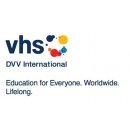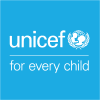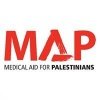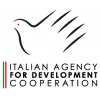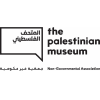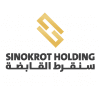External evaluation of an EU-funded project
Call for price offers
External evaluation of an EU-funded project
Title: Evaluation of the Stories of Palestine Project
Country: Palestine
Donor: The European Union, EU, and the German Federal Ministry
for Economic Cooperation and Development, BMZ.
Project No.: ENI/2020/418-433
Budget line No.: 5.4
Date of publication: 27.03.2024
Application deadline: 15.04.2024.
1. Introduction
DVV International in partnership with Dar al-Kalima University, and in cooperation with eight community centres for education of youth and adults in West Bank, Gaza Strip and Jerusalem, implemented the "Stories of Palestine" project. The three-year project is funded mainly by the European Union.
The project’s goal was to enhance civil society’s engagement in preserving, reinforcing, and promoting Palestinian culture. Particularly, it aimed at strengthening contribution of community-based youth and adult education centres in Palestinian rural areas and communities that are less exposed to the various artistic expressions in fostering cultural education and action.
The "Stories of Palestine" project aspired to achieve its desired goals through three phases:
First phase: Building capacities of eight community centres for youth and adult education in in provision of cultural education and cultural actions that promote local cultural heritage, active civic engagement of local women, men and youth, and values of tolerance and respect of cultural diversity.
Second phase: Enhancing participation of the targeted communities in cultural and artistic expression by increasing opportunities for quality local cultural education and action.
Third phase: Raising public awareness about the Palestinian cultural heritage and the narrative, in Palestine and Europe.
DVV International is seeking (an) expert external evaluator(s) for
2. Objective of the project
The overall objective for the project is:
Enhance civil society engagement in preserving, reinforcing, and promoting the Palestinian culture.
The specific objective of the project is:
Strengthen contribution of Adult Education Centres (AECs) in Palestinian rural areas and areas that are less exposed to the various artistic expressions in fostering cultural education and action.
The outputs of the project are:
- Eight community-based adult education centres have enhanced capacities in provision of cultural education and cultural actions that promote local cultural heritage, active civic engagement of local women, men and youth, and values of tolerance and respect of cultural diversity.
- Engagement of the targeted communities in cultural and artistic expression is enhanced through increased opportunities for quality local cultural education and
- Public awareness about the Palestinian cultural heritage and narrative is improved through a mobile cultural festival implemented by the eight targeted communities and visiting three Palestinian cities and six cultural and adult education centres in three European countries.
3. Activities of the project
The following activities are conducted to achieve the project’s outputs based on the corresponding numbering.
- Curriculum development: a team of 10 master trainers will be formed and several workshops will be conducted to develop training modules for adult educators on cultural education and community-based cultural actions within the Palestinian context.
- Capacity building of the management of targeted community-based adult education centres: Eight adult education centres will be supported through training and coaching for 24 management staff to improve their capacities in management of cultural events and projects, networking with other arts and culture operators on national level and conducting a study visit to adult education centres and cultural institutions in Germany.
- Training of local adult educators: 40 local trainers (artists, storytellers, designers, tourist guides, photographers etc.) from the 8 communities will participate in training on: adult learning and teaching principles, group dynamics and communication in cultural education, methods of cultural education for adults (including digital forms of cultural actions/ education), planning, implementation and evaluation of cultural education, and community-based actions to promote Palestinian cultural heritage. The participants will also contribute to refining and developing the training curriculum on cultural education.
- Support of Start-up business in field of culture: Eight targeted adult education centres will participate in a call for proposals to select five start-up business ideas to be financially supported. The successful start-up businesses will provide services for locals and for The centres will be supported in developing and piloting at least one product/ service (e.g. a guided tour and/ or culinary path).
- Implementation of cultural activities: The eight targeted centres will be supported to implement local cultural events/ festivals/ contests within cooperation with the trained local adult educators to increase involvement of the local communities in cultural and artistic expression.
- Documentation of local heritage: Each centre will work with at least 30 young men and women to document one or more aspects of local heritage (such as traditional costumes, traditional food, local oral history, local architecture, local traditional songs, traditions of agricultural seasons, weddings, inter-generational exchange ). Documentation could be in various forms such as books/ films/ photography/ blogging/ articles or stories etc. In addition, this experience of the eight communities will be documented in a film and a book.
- Promoting Palestinian cultural heritage: Based on the cultural education/ activities/ start- up businesses, the eight targeted centres will prepare a cultural festival to visit three Palestinian cities and several cultural and education centres in In addition to specific exhibits, the documentation of local cultural heritage will be presented, and services/ products of five start-up businesses will be marketed and promoted within this festival as well.
4. Purpose of the evaluation
The purpose of the evaluation is to assess the achievement of the envisaged outcome and the fulfilment of the respective indicators of the project as presented in the project’s logical framework and description of the action. The evaluation shall be descriptive and analytical in terms of analysing the background of achievements or non-achievements and provide future oriented recommendations and strategic advice for future relevant interventions in the country.
The evaluation should take all possible sources (secondary and primary sources) of information into account and triangulate the different information sources to achieve high quality and valid data. This data shall enable the evaluator to provide evidence-based conclusions and feasible and realistic recommendations. The evaluation shall explain if and to what extent project’s indicators have been achieved and if the applied measures are effective and appropriate to reach the envisaged goals.
5. Guiding questions of the evaluation
5.1. Specific questions in relation to the outcomes of the project
- Have the eight targeted AECs been (publicly) recognised by their communities as local cultural actors which support preserving, reinforcing, and promoting the Palestinian culture?
- To what extent did the eight targeted AECs succeed in supporting increased and various artistic expressions in their localities?
- Have the capacities of the eight targeted AECs in provision of cultural education and cultural actions increased?
- To what extent did the eight targeted communities engage in additional/ new types of artistic expression and cultural action/ education?
- To what extent was the awareness of the public about the Palestinian culture and heritage in Palestine and abroad enhanced?
5.2. Relevance
The extent to which the project is suited to the priorities and policies of the target group, recipient, and donor.
- Has the project been relevant to the needs of the targeted AECs? How were those needs identified? Was the project successful in responding to them?
- To what extent do the stakeholders agree with the relevance of the newly created/ supported cultural programmes to their communities’ needs and future needs?
5.3. Effectiveness
A measure of the extent to which the project attains its objectives.
- To what extent were the objectives of the project achieved / are likely to be achieved?
- To what extent were the objectives of the targeted AECs achieved/ are likely to be achieved?
- What were the major factors influencing the achievement or non-achievement of the objectives for both?
- How effective were the approaches/ methods/ tools used in the project?
- To which extent have the used digital tools supported achievement of the goals of the targeted AECs?
5.4. Efficiency
Efficiency measures the outputs -- qualitative and quantitative -- in relation to the inputs. It is an economic term which signifies that the project uses the least costly resources possible to achieve the desired results. This generally requires comparing alternative approaches to achieving the same outputs, to see whether the most efficient process has been adopted.
- Were activities of the project cost-efficient?
- To which extent and how did the project support the targeted AECs in achieving efficiency in provision of community-based cultural action/ education?
5.5. Impact
The positive and negative changes produced by the project, directly or indirectly, intended, or unintended. This involves the main impacts and effects resulting from the activity on the local social, economic, environmental, and other development indicators. The examination should be concerned with both intended and unintended results and must also include the positive and negative impact of external factors, such as changes in terms of political, trade, and financial conditions.
- How did the project influence change in the targeted AECs’ understanding of the cultural education that aims for empowerment of the communities and preservation of the culture, identity, and heritage?
- How were these changes, if any, mirrored in strategic documents, structures, budgets, methodologies, and approaches of the targeted AECs? How did these changes influence results of work of the targeted AECs in their communities?
5.6. Sustainability
Sustainability is concerned with measuring whether the benefits of an activity are likely to continue after donor funding has been withdrawn. Projects need to be environmentally as well as financially sustainable.
- Will the results/ impacts of the partnerships continue when the funds of the project cease?
- How realistic is a full integration of the programmes that have been developed through the project within the existing plans of the AECs without reliance on external funding?
6. Target group of the evaluation results
The target group of the evaluation will be the project management team of DVV International country and regional office as well as the head office in Bonn, in addition to the implementing partner, Dar al-Kalima University, and the local targeted AECs. The results of the evaluation will also be sent to the funding agency (the European Union). Furthermore, the results of the evaluation will also be presented to the partner institutions and taken as a key source to critically reflect the activities and measures of this project.
7. Expected Input / Financial Proposal:
The indicative number of working days foreseen is 15 - 18 working days. The following allocation of days is only an example and may be changed according to the requirements of the proposed methodology.
- 2 days total of briefing and
- 4-5 days of document review and preparation of
- 1 day of mission
- 3-5 days of field
- 3 days of report
- 2 days of report
Please take the indicative distribution of working days into account in your suggestions regarding the evaluation methodology.
8. Methodological approach
A combination of primary data collection and secondary data review is expected during the evaluation. Secondary data sources will be made available to the contractor. The following secondary documents will be provided:
- Proposals and descriptions of the
- Logical framework of the
- Annual plans and annual
- Annual programme reports
- Partner documents of project implementation (as far as available)
To collect information from primary data sources, interviews with key stakeholders would be recommended:
- Management (including financial management) of regional and country office of DVV International.
- Senior management in the head
Institutional capacity of partners:
- Stakeholders from partner institutions in the targeted
- Trainers and
Effectiveness regarding the target group:
- Representatives of final
It should be checked if standardised quantitative approaches might be applicable.
It is well understood that in the case of the Gaza Strip stakeholders, and due to the ongoing war, the evaluation would be limited to the desk research and review of reports and implementation evidence from the relevant partners.
9. Indicative Timetable
The indicative timetable for the evaluation is foreseen as follows:
- Selection and contracting of evaluators: 22.04.2024.
- Briefing: by 30.04.2024.
- Submission deadline for inception report: 10.05.2024.
- Integration of comments by DVV International and agreement on detailed methodology and itinerary for the field visit (if planned): 17.05.2024.
- Field visit, up to 5 days: until 31.05.2024.
- Debriefing with country office at the end of the field
- Draft final report: by 15.06.2024.
- Final report: by 01.07.2024.
10. Right of use
The Principal has the exclusive and unlimited right to use the results fulfilled by the contract. The transfer of this Right of Use is complete with the payment made to the Contractor.
The Contractor has Right of Use permission strictly limited for personal non-commercial purposes. Transfer of the Right of Use to third parties is excluded.
11. Tasks of the evaluator/ evaluation team
The evaluation team will be requested to fulfil the following tasks:
- Methodological design and planning of the evaluation in communication with DVV International.
- Desk Study of relevant project documentation (application and log-frame, annual plans and reports, other monitoring documents and project reports, teaching, and PR material).
- Design of data collection instruments for the field phase.
- Prepare an Inception Resport.
- Conduct the field phase with participation and involvement of all relevant stakeholders.
- Compile preliminary evaluation report, integrate comments, and finalise the report.
- De-briefing sessions.
12. Deliverables
The following deliverables are expected:
- Inception report: The expert/ team of experts will present a report giving detailed information about methods and specified questions. This report will be presented to DVV International, discussed and if need be, amended.
- Debriefing in the country: By arrangement with the DVV International country office the (team of) expert(s) will present the preliminary, country-specific results of the evaluation and will answer questions in this regard, documenting the discussion, which must form part of the final report.
- Draft evaluation report: DVV International will receive a first draft of the final report, which will be examined based on the DAC Evaluation Quality Standards; on this basis, comments will be made on the rough draft before it is returned to the expert(s).
- Final evaluation report: The final report will consider the comments on the rough draft about the entire evaluation process and all results and recommendations.
The evaluation report should be produced in English and submitted to DVV International electronically. A respective template for the final report will be provided in the inception phase to the contractor.
13. Responsible persons at DVV International and logistics
DVV International will be the contracting authority for this evaluation. The main contact persons will be:
- Maja Avramovska, Senior Manager Monitoring and Evaluation in
- The Senior Desk Officer for Middle East at DVV International in
- The Regional Director of DVV International in the Middle
- The Country Director of DVV International in
The DVV International country office will provide all relevant documents and support the evaluator/ team of evaluators in the field with arranging interviews and field visits etc.
The final report will be accepted by the senior manager for monitoring and evaluation and the senior desk officer for Middle East of DVV International in Bonn.
14. Qualification of evaluator/ evaluation team
The consultant(s) we are looking for should:
- have at least 5-year experience in evaluation of EU-funded projects and/ or the field of development projects (please, provide proof of this experience).
- be able to demonstrate sound knowledge of evaluation methods and
- be (an) experienced professional(s) in the fields of adult education and/ or cultural education,
- have experiences with stakeholder participation and transparent knowledge
- analytical and writing
- fluency in English and Arabic is a
15. Quality standards
The candidates should propose a suitable evaluation design and methodology, well adapted to the project objectives and TOR for the evaluation, to meet the evaluation’s goal and objectives.
The evaluation must comply with the following standards and guidelines:
- DeGEval-Standards https://www.degeval.org/degeval-standards/standards-fuer- evaluation/
- OECD-DAC Principles for Evaluation of Development
16. Application
All candidates who would like to participate in the tender for conducting the outlined evaluation should submit the following documents:
- CV(s) of person(s) involved in
- Technical proposal covering the following aspects (maximum of 6 pages):
- Show understanding of the
- Methodological
- Work Plan / steps of
- Consideration of specific requirements of the context of the
- Internal Quality
- Financial
- Proof of professional experience in the field of evaluation of EU-funded projects and/ or development projects.
Please visit the website https://www.dvv-international.de/ausschreibungen in order to download the templates.
The offers must be sent until 15.04.2024, to the following e-mail addresses:
Maja Avramovska, Senior Manager Monitoring and Evaluation in Bonn, e-mail address: [email protected];
Tomi Roesser, Senior Desk Officer for Middle East at DVV International Headquarters in Bonn, e-mail address: [email protected];
Barbara Hust, Regional Director for Middle East, e-mail address: [email protected].
Ola Issa, Country Director for Palestine, e-mail address: [email protected]
Late submissions will not be accepted.
17. Evaluation criteria of proposals
The proposals will be assessed according to the following criteria:
- Qualification of evaluation team (counts one third) (based on criteria mentioned above).
- Technical proposal (counts one third) (based on criteria mentioned above).
- Financial proposal (counts one third) (best price-service relation).




